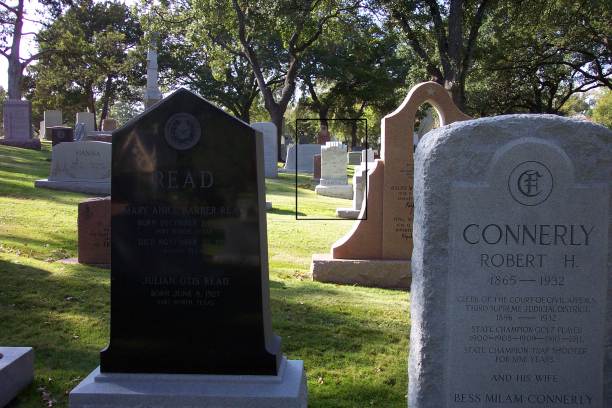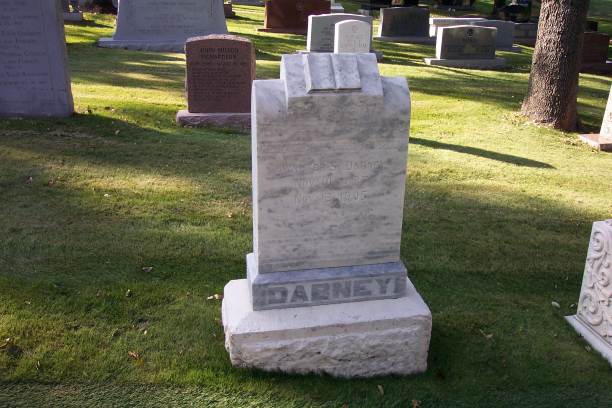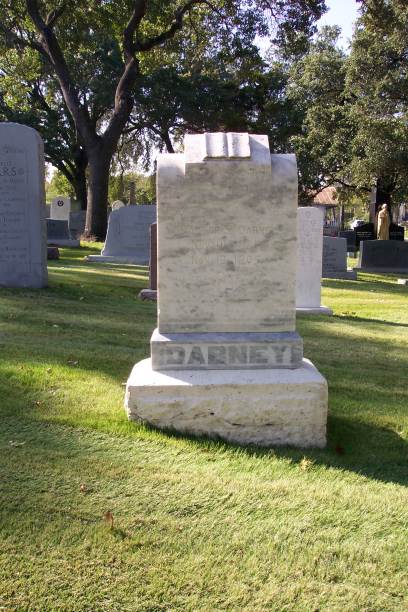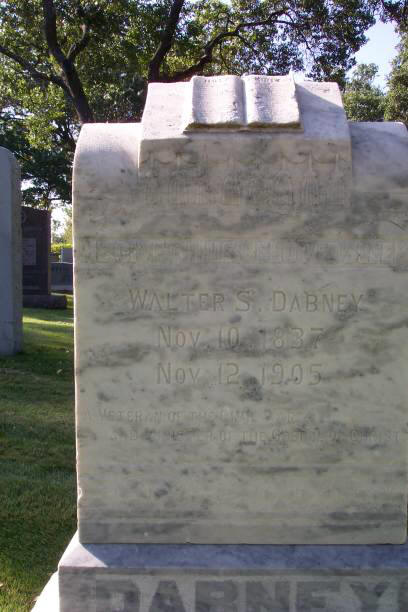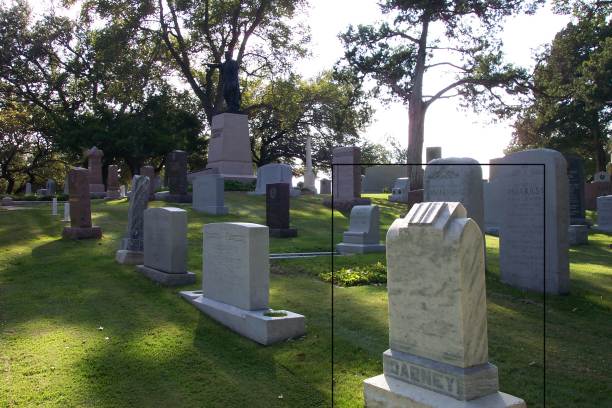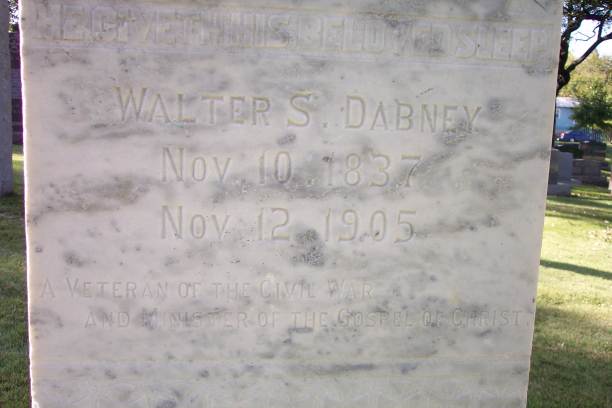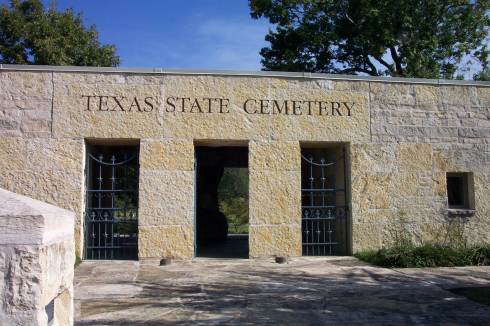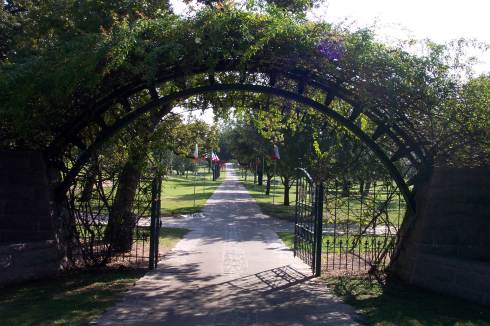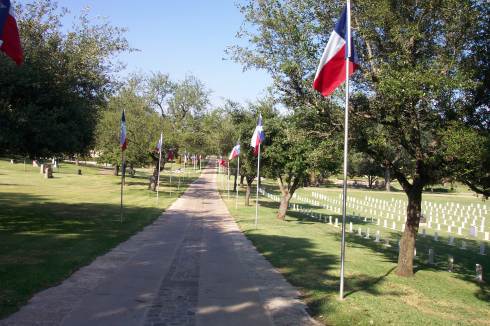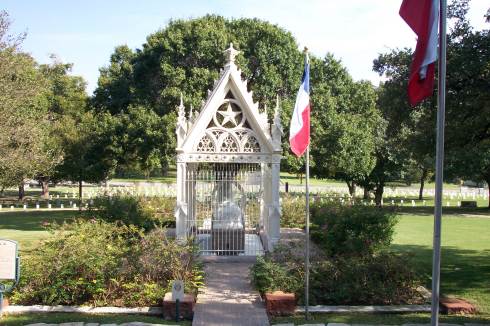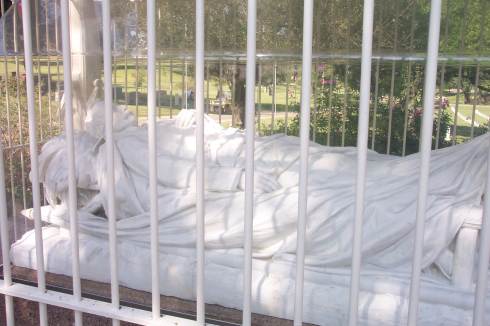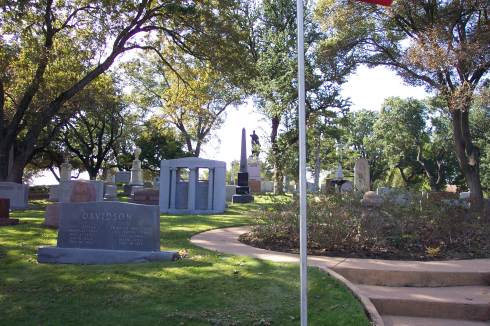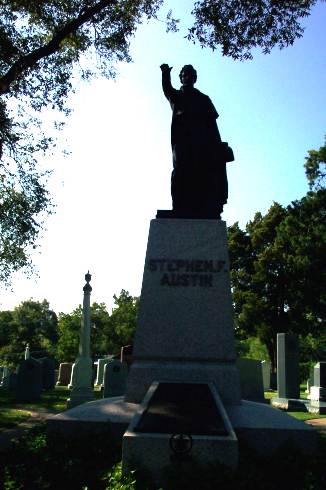Walter Scates Dabney
1837-1905
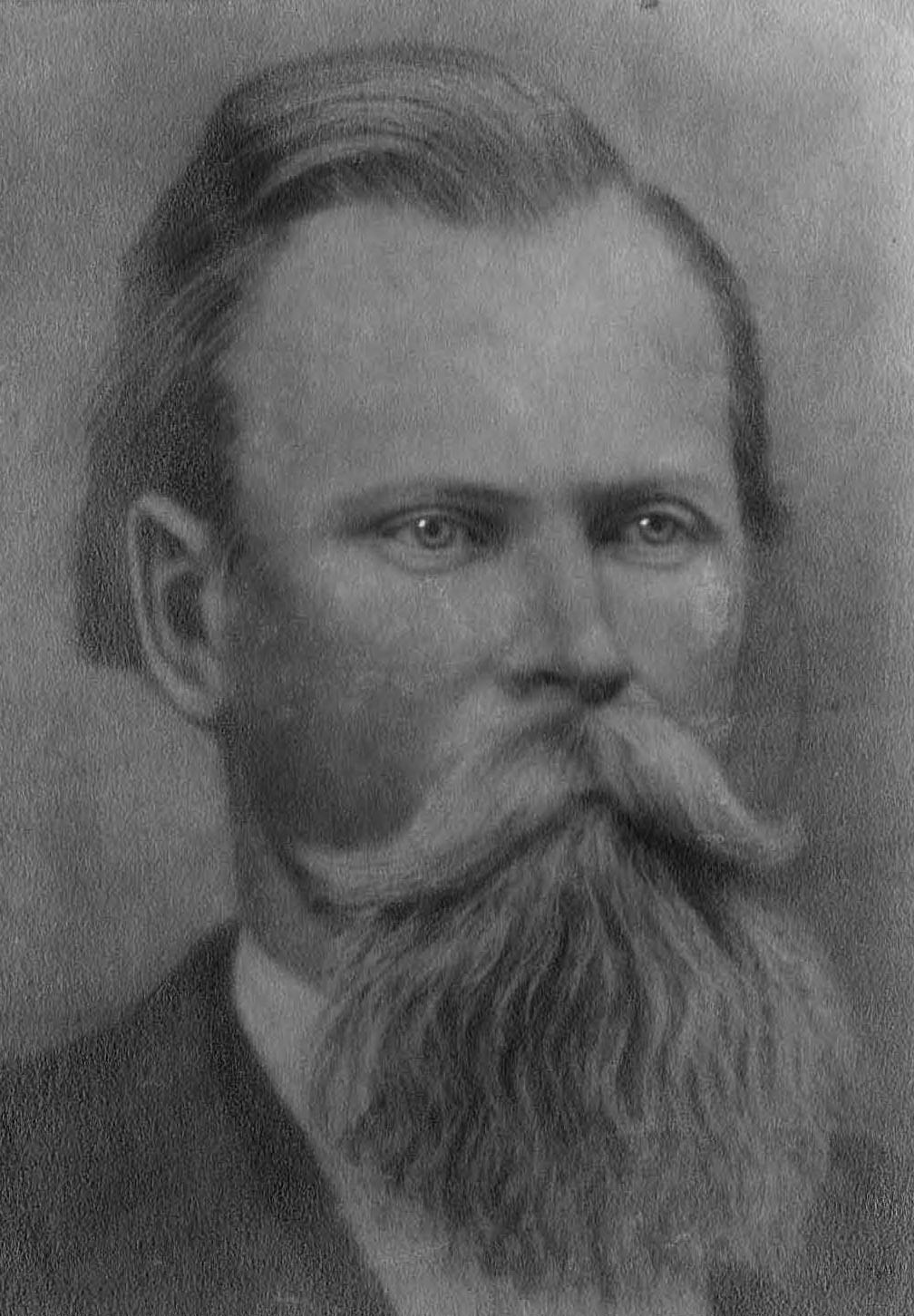
Photo Courtesy of ACU Brown Library
![]()
Life of Walter S. Dabney
Aubygné was a town in France in the Department of Berri. A certain young John, valiant in the services of his king, was awarded a knightly shield charged with three gold fleur-de-lys on a blue field surrounded by a red border which is charged with eight gold buckles," Thus about the year 1345 the name John D'Aubygné was inscribed on a tomb and his Huguenot descendants remained French until The Edict of Nantee was revoked by King Louis XIV.
However Corneille D'Aubygné must have been a rover. Through contacts with the English followers of the exiled King Charles II, this descendant of old John, having mastered another language or two, came to represent the English crown in Virginia, for in a report to Colonel Frances Maryson of London, he wrote June 29, 1678, that "the Indians in peace with the English are in fear of the Foreign Indians that lately attempted against the English which were none of those included in the late Peace."
"Virginia., June 29, 1678
"Cockacoeroe, Queen of Pamunkey to Colonel Frances Maryson. Finds by experience the great King of England to be her very good friend. Shall make it her business to possess her neighbor Indians and others to be of the same mind and affection to his Majesty as herself and her example will be a pattern to all those who are concerned in these late Articles of Peace never to be violated, If any insurrection arise it will be contrary to the knowledge of the Queen who will endeavor to put a period to the least differences. Has vowed perpetual fidelity to his Majesty. Confesses her fault in running away. Her grievances are deferred to the next Assembly. Is very much dissatisfied with the Rappahannocks who are very disobedient to her commands for what she bids them do in behalf of the English; they are a deceitful people. Her son presents his humble service to the great King of England.
"This is the interpretation of the Queen of Pamunkey with her mark attested by me. -Cornelius Dabney" (The Queen of Pamunkey was at the head of what remained of the Indians once ruled by Powhatan and Opecanccanough. She had been the wife of Tottopot.omoy who was killed as an ally of the settlers in the fight of Bloody Run. The "running away" she refers to occurred during Bacon’s Rebellion. Report in Volume XXIII, 1915, Virginia Magazine of History and Biography. page 402.)
The religious unrest in France had scattered the D'Aubygné family. An older brother went to the Canary Islands where his sons became governors. Robert and Corneille fled to Wales where they made their home for a season. There Corneille married and with his English wife and his American job came to settle in Virginia, King William County. With a new home in a. new world as citizen of a new country, Corneille D'Aubygné evidently thought that he would complete the change by giving a new spelling to his difficult French name that nobody seemed able to pronounce. Thus Corneilius Dabney" long an Indian interpreter and planter of' Virginia" founded a new family and took on as a gift from his king, like the old John, a new coat-of-arms. Among the records of' the marriages of his several children, one shOWS that a daughter was the mother of Patrick Henry.
A son, Corneille D'Aubygné, born in France 1675, immigrated to America in 1715 or 1717, and after having lost his first wife, invited another Welsh girl, Sarah Jennings, to come to this far-away land. Accordingly, he and his new bride were married April 1720, and migrated in 1722 to New Kent County, Virginia. Their first son William was also twice married. His second wife, nee Philadelphia G. Wathney, bore a son who was named for the beloved French grandfather and great grandfather. This Cornelius born in 1756, at twenty years of age, on March 12 as private soldier entered Terrell's Company to fight the British. Later he became lieutenant in the Continental Line and served till the surrender of Yorktown. For this patriotic duty, the heirs of the young soldier were awarded a Land Bounty granted by the Executive Department, Richmond, Virginia. Cornelius the third married Elizabeth Smith Winston in 1783. He died in 1821.
This soldier of the American Revolution had in 1799 a son named Albert Gallatin Dabney who like his father became a soldier and like his great grandfather a planter. The star of his destiny pointed westward. Hence Major A. G. Dabney migrated to Kentucky, where he prospered so well that all his boys after graduating at the local Academy of Arts were sent back to Virginia for professional training. He had strength of character tempered with gentleness. On one occasion he took a group of slaves down the Mississippi to the markets of New Orleans. Imagine the family's surprise upon seeing the whole troup return dancing gleefully in their master's wake. The Major reared his children with the strictest moral and religious tenets of the Disciples of Christ and established in Hopkinsville, Kentucky, the first Chrlstlan Church, which still bears his name as builder. He passed away in a cholera epidemic, August 10, 1855. His son Thomas, Federal Judge of Cadiz, Kentucky, kept the peace in the troubled war days by clapping into prison disorderly visiting Federal soldiers. Son Smith also read the law to Northern men who needed its restraining influence in a border state. Isaac, finding Kentucky already too cramped for pioneers in search of open spaces, moved to Texas with Edwin, the family's eldest, who zealous missionary that he was, established a Dabney colony at "Kentucky Ridge" in Austin County, eight miles south of Brenham, and founded churches throughout this section of the state. The following is quoted from the Church Record at Huntsville, Texas, May 1863.
"This congregation appointed and held a meeting of some days. Present and laboring brothers were J.W. Bush and Edwin Dabney of Austin County. This meeting will be long remembered as a season of refreshment from the presence of the Lord." The eldest of Major Albert Gallatin Dabney's second set of children was Walter Scates, born November 10, 1837, and named for his mother, Elizabeth Egleston Scetes Dabney who died in 1860. After graduating in law at the University of Virginia in 1859, he married Miss Lucy Dickinson, December 13 of that same year and settled in St. Joseph, Missouri. With the outbreak of the war in 1861, he joined Lieutenant J.E.B. Stuart who had Just resigned a commission in the regular army, and proceeded with him to Richmond, Virginia. Then and there Dabney was commissioned as lieutenant in the Confederate Army and attached to the Horse Artillery under the command of Colonel Pelham. The following is a record jotted down in his own writing on the back of a law notice:
"To my children:
"I left St. Joseph in April, 1861. Went to Virginia. Joined Col. Stuart. Assisted in organizing the Horse Artillery which was so famous in the war. Was a lieutenant in that command. Fought through the war for Southern Independence. Never was sick nor wounded. Was in every battle of importance fought in Virginia by Lee's army. Shared in all the victories and defeats and hardships of the army of Northern Virginia . Never was captured, but ran pretty close. Surrendered at Louisa Court House on the 19th of April to Col. Hunt, U.S.A. which my parole will show. Retired to a quiet life with my young and beautiful wife. At this time we had no living children. Keep this, my children, as part of my history. 1870."
After the close of the War between the States, the defeated Confederate soldier again hung out his shingle:
WALTER S. DABNEY
ATTORNEY & COUNSELLOR AT LAW
ST. JOSEPH, MO.
"Having returned to St. Joseph, and permanently located, I respectfully inform you that I am prepared to attend to all business entrusted to me in the practice of law. I will give prompt attention to the Collection of Claims, examine Land Titles, and will practice in all the Courts of the Twelfth iudicial District.
"With permission, I refer you to the following gentlemen: Anderson and Watson, Commission Merchants, St. Louis.
W.P. & L.R. Shryock, Commission Merchants, St. Louis.
Hon. Judge H. J. Stites, Hopkinsville , Ky.
Broadhead & Sharp, Lawyers, St. Louis
Judge T.C. Dabney, Cadiz, Ky.
Scates, McAllister & Jewett, Chicago, Ill.
Office.----"
Evidently law in Missouri after the war did not prove lucrative for the young Southerner. He moved back to Virginia, but stopped at Hopkinsville where he laid to rest a baby girl in the old family cemetery. He and his brother Joseph next tried commercial life. Since money was scarce, business did not flourish. Having been reared in a strongly religious atmosphere, the soldier of the Confederacy turned to the church, entering Bethany College, a school established by Alexander Campbell to train preachers. After his ordination in 1868 as Minister of the gospel, the young preacher remained four years in Virginia, farming and preaching; then with his wife and little brood of three small boys joined brother Edwin in Texas. Those little boys were William Spotwood Dabney, living now in Phoenix, Arizona; Joseph Thomas Dabney residing with three children of his own, in Atlanta. Georgia; and Parker Richie who now sleeps, the most beloved of the flock, in the Odd Fellows' Cemetery in El Paso. In 1902, March 23, Parker at the age of thirty-one succumbed to pneumonia on his way home from Tuscon, Arizona, where he had resided for his health--a young successful businessman, charming in personality, noble in character, and favorite of the family. A fourth baby boy joined the family circle, Walter Edwin, born in Texas 1873, and like the senior Walter this junior member possesses strict integrity of conduct and kindliness of spirit. Again quoting from the father's memorandum "To my Children" is the following;
"Moved to Texas, Austin County, in January, 1872. Lived on the farm of my brother Edwin. On the Christmas following, moved east of the Brazos River east of Hempstead, west side of Read's Prairie. In August, 1873, my wife being in bad health, I took her on the 14th to Dr. Rogerson's in Montgomery to be treated for heart disease, and on the 19th, she died and was buried near the road leading to Minks Prairie, not far from the store in Rogerson's burial ground.
"Lucy Mary Dabney was born June 23, 1842, in Orange, Co., Va., age 31, one month, 21 days."
Relatives took the four chlldren and the father continued preaching. During this period he visited brethren and friends in Huntsville, Texas.
In 1876, Walter Scates Dabney returned once more to Kentucky, "The Gospel Advocate" carried this personal notice :
"W.S. Dabney, one of the most, laborious defenders of the truth in Texas is on a visit to his relatives in Ky. He will visit Nashville before his return to the Lone-star State. Any church desiring the labors of a faithful evangelist; would do well to address him at Cadiz, Ky."(1876) On October 26, he and Miss Texana Bibb were married in Guthrie, and the couple set out for Texas to remain the rest of their lives. They first located near Schulenburg, after a year moving to Stockdale where farming on week days and preaching on Sunday kept them busy. The bride's stepson, William, relates how his new mother, used as she was to ease and servants, wept when she saw her Pioneer cabin. But sturdy and brave she went to her duties with a will. Long after, she said that those days so filled as they were with work and, youthful dreams, had been the happiest. The eldest son William, when his stepmother at eighty was alone in her San Antonio apartment, enclosed many checks in cheerful letters which told her sweet words saying that he did not know what father and he would have done without her in those by-gone years.
In 1881, the preacher now grown popular in his profession was called to a substantial church in the historic Goliad community, the members of which were thriving cattlemen. Here the wife, saying that "she did not propose to live on charity" put her parental inheritance into a farm, for herself, her own child, and the boys, and left her Minister free to evangelize. He went hither and thither on his one Kentucky thoroughbred, covering Southwest Texas in his religious zeal, and bringing back from his trips the poor, the halt, and the sick who cared to partake of Jersey milk and green vegetables. Many parishioners and friends in those bold, bad days died in their boots, but this holy man buried them with an eloquence that their bravery deserved, for in his own innocence of soul he saw only honor in theirs.
When the pulpit was not occupying his thoughts, politics was. Affairs of state in Kentucky, Texas, Tennessee, Virginia and at Washington were daily topics of conversation after the arrival of each weeks mail. His Reverence early espoused the monetary system of the youthful William Jennings Bryan. The small daughter of the home showed her interest in household discussions by naming the New Foundland puppy "Grover Cleveland." There were family prayers every evening, church services Sunday morning and afternoon, and at bedtime, Bible stories if the father was at home, and Dickens and poetry if the mother had to tkck the family in. For entertainment while both parents were busy, the huge pulpit Bible served as an excellent picture book.
From a letter in this family Bible, addressed to his children are these admonitions:
"I wish my descendants to receive no religious dogmas for Christianity but to read and receive as true this Book of God which I believe and publicly teach. There is no salvation in any other faith and practice but the one taught by Jesus and His apostles. My children, ‘tis my heart's desire that you all be Christians.--Do God's will, and not your own, nor that of man's.---Be honest and truthful in all things, live upright before God and man. Seek not to be rich, but an honest living; if you have wealth, use it in doing good, and not for selfish purposes.---May we meet in Heaven and be with the Lord Jesus forever. Now farewell. May God's blessing abide with you.
Affectionately,
W.S.Dabney
A.D.1877
Pioneer days changed to modern. Those golden locks were too fair to turn completely grey, and those eyes as blue as the sky, never dimmed. Though deafness shut out the noise of the wide, wide world, the daily papers brought in its interests. The preacher became too frail for regular ministerial work, but not too ill to study, read, and write religious reviews. His devoted wife whose health never gave way, kept faithful watch. To the last, affairs of church and state were nearest his heart. There was great fun one day after his reading a full page news account of the Russo-Japanese War when he turned to the Bible saying: "Now listen what Paul says to the Russians."(Romans)
From Goliad the family went to Austin in 1904 to place their daughter, Lucy Jane, in the University of Texas. A few days after the arrival, two elderly gentlemen studied each other from opposite lengths of the street car. Almost simultaneously each arose and walked with slow dignity to greet the other.
He from Goliad; "Is this Joel Miller of Virginia?"
The one from Austin: "Is this Walter Dabney of Virginia?"
Then both in the same breath: "The last time we met was at the Battle of Fredericksburg."
How many delightful hours these two friends spent rehearsing their boyhood experiences and war campaign!
On a beautiful Sunday afternoon, November 12, 1905, Walter Scates Dabney passed suddenly from this good world to claim his citizenship in that unseen one for which he had spent his maturer years. His character was above reproach. His wife, Texana Bibb Dabney, outlived her husband nineteen years before she joined him on a later Sunday morning, December 21, 1924. But the years between were never so happily spent because there were no more duties upon which to expend her marvelous energies. On Walter Scates Dabney's tomb in the Confederate Cemetery at Austin is inscribed: " "A soldier of the Confederacy and of the Cross." "The Austin Statesman" that November, 1905, carried an obituary written by Colonel J.H.B. Miller, the beloved comrade-at-arms , the closing sentences of which attest the spirit of "noblesse obligé" possessed by Walter Scates Dabney: "I knew him well all his life f rom his boyhood, and I never knew him to say an unkind word of any man or woman, nor have I ever heard anything but chaste language fall from his lips.---Walter Dabney belonged to an old Virginia family remarkable for fine character and splendid intellect and he inherited all their virtues."
The names of Mrs. Texana Bibb Dabney and Mr. Walter Scates Dabney are among those of the saints written beneath the exquisite stained glass window back of the choir and pulpit in the beautiful First Christian Church at Huntsville, Texas.
William Spotswood Dabney
Life on the farm offered the usual round of activities to the four little boys of the Reverend Walter Scates Dabney. After school hours in town, they came home to their evening chores. A receipted tuition slip, recently found, dated December 13, 1882, signed by Professor Brooks, shows that William attended the Male Academy at Goliad. Later this eldest son was sent to "Add-Ran College", Thorp Springs, Texas, a school that has today become Texas Christian University. William, too generous with the paternal pocket book, had his allowance curtailed and finally withdrawn. Consequently the youth exchanged his book for a lasso and ranching took the place of scholarship. His subsequent fortunes ran the gamut of success and failure of all cattle men. During fat years, his pocket book was bulging; during, lean years it was flat; -but finally the Corpus Christi hurricane of 1919 wiped out overnight a ten thousand dollar cotton crop and ended for him farm life in Atascosa County.
Broken in spirit and discouraged beyond recovery, William came to his stepmother in San Antonio for sympathy and consolation. She took fifty of her last sixty dollars in the bank to buy a railroad ticket to send him away to start anew in California or Mexico. Where he went, how he suffered, and when he adjusted himself, she waited in vain to hear. Finally cheerful letters came and in them, not fifty dollars, but tenfold more. At last a small position in the school system of Phoenix, Arizona, gave him the job of rounding up youngsters instead of cattle and tenants. When he catches ragged truants, instead of herding the offenders to the school room basements for a scolding, he marches the starving urchins to his favorite restaurant for a meal. The proprietor told Lucy Jane on her visit there in 1932 that this kindly brother keeps with the café three open accounts just to feed the poor. Shades of his father, Walter Scates Dabney!
William has no family, no associates. He reads when not busy with work. He is painfully timid, and by the way, on occasion, mightily high tempered. None ever knew him but said that he was the best man in the world! Certainly his sister knows that this estimate is true, for she cherishes a bulky volume of love letters in verse written to her in New York City, after the death of her mother, --letters that show tender solicitude and deep affection for the woman who is still for him the little wisp of a creature whom he, a fifteen-year-old boy, used to rock to sleep near fifty years ago. Died January 19, 1944 in Phoenix, Arizona.
Joseph Thomas Dabney
Joseph Thomas was the dashing member of the group. How he scintillated on Friday afternoon school programs! For the edification of the younger brothers he read "Darius Green and His Flying Machine" from the hay stacks in the back lot. Early Joe quitted the family roof to go to San Antonio to make his way in the world. When he returned for rare visits he looked gay, handsome and athletic. On the gala days, he would sing popular songs and teach his sister boxing, for he claimed a featherweight championship in the sport, and printed jingles in the local papers. After his marriage to Miss Elspeth McDonald in 1895, he entered the furniture business in Atlanta, Georgia, where his sister spent July, 1902, with his wife and two attractive children, William and Dorothy. Since the breaking of the old home ties with the death of his father, Joe, absorbed no doubt, in bread and butter problems, has neglected to write. Therefore, this booklet lacks the details of the only branch of the family which its writer should like best to chronicle because thru this second son’s descendants only can the line of Walter Scates Dabney hope to live on thru the years.
There is a younger daughter, Nell. The family lives in Houston, Texas.
Parker Richie Dabney Parker Richie Dabney, after graduating from business college in San Antonio, went to Arizona on account of declining health. His grain and fruit store in Glendale flourished. A happy six month in 1900 he and his sister had gone together on fruit buying excursions to orange groves, apricot orchards, and vineyards up and down Salt River Valley, and on sight seeing tours to irrigation systems, to Indian reservations, and to the picturesque Camel Back Mountain! The desert, too, had its fascination. A week-end trip to Jerome where the streets stand on end, gave Parker and his visitor opportunity to see the greatest copper mines in the world, while a three-week vacation farther toward the north gave them a glimpse of gay social life in Prescott, of the marvels of Flagstaff, and of that greatest of all wonders, the Grand Canyon. This brother, a prince of companions, took the keenest delight in showing to his Texas guest the rings of Saturn and the moons of Jupiter thru the telescope of the Lowell Observatory: in arranging picnics to the terminal moraine where from the walls of the caverns the party of pleasure seekers chipped ice to freeze the dessert tor lunch; in playing hide-and-seek among the ancient cliff dwellings near the colorful Sunset Crater; and in traveling pioneer fashion thru the expanse of Coconino pine forest "to that show place of the United States, the Grand Canon. As his health grew more delicate he removed his store to Tucson, and for a season studied at the University of Arizona. His stepmother hastened to his bedside in El Paso, arriving too late for clear recognition two days before his death on March 23, 1902. Thus passed away a popular and beloved young man who was the soul of honor and one of the fine of earth.
Walter Edwin Dabney
Walter, the youngest son of Walter Scates Dabney, lived on with the kindred in Kentucky Ridge, Texas until he was twelve years old before joining the family on the farm at Goliad. William had been the baby sister's nurse; Walter now became her playmate. He told her fairy tales and threatened to expose live coals in the fire place on Christmas Eve so as to burn Santa Claus' feet. When he reached manhood, he went back to relatives in Granbury, Texas where he farms. Twice married, he has no children of his own, although his stepson and daughter are as devoted to him as his own could be. In two visits to his home during the summers of 1927 and 1929 his sister was introduced anew to a gentle, kindly . Christian neighbor who is a pillar of the Church and a s set to his community.
Texana Bibb Dabney
Texana Bibb Dabney, third daughter of William Bibb and Sarah Jane Hudson Bibb, was born in Clarksville, Tennessee, December 13, 1843. On account of The War between the States, she had little formal schooling beyond the elementary grades, but her father was a prominent planter and slave owner and her mother an untiring church worker. Their twenty-room colonial home at state line, Guthrie, Kentucky, was the rendezvous of relatives and friends from both sides of Mason and Dixon Line. With the outbreak of hostilities, Mr. Blbb, who was too old to bear arms, was captured and paroled after having been compelled to take the oath of allegiance to the Government. With no responsibility or near kinsmen in the conflict, what a round of social gaieties the young daughters had! They danced and exchanged repartee with Northern soldiers who raided their father's estate, and banqueted Southern soldiers and bound up Confederate wounds.
Unhappy years followed. The family circle melted away. Four smaller children died. One three-year-old boy was drowned in the icepond back of the great orchard in splte of eleven members of the famlly and dozens of pickanlnnies to watch. Three daughters married: Henrletta, the eldest, gentle, sweet, modest, unselfish, married Mr. George White, planter at Tate's Station; Arie, stately, haughty, intellectual, married Mr. Thomas Pettus, wealthy tobacco merchant of Clarksville; and Mary Elizabeth, youngest, most favored and most accomplished, married young Dr. Joseph T. Linebaugh of Guthrie. Arabella, the witty, went away to teach, and Texana, the capable, remained in the Big House with the widowed mother and handsome young brother Robert. Not for long did, this dependable daughter preside over the destinies of the home, for a chum, dainty Elizabeth Dabney Lewis, pretty matron living across town had a brother Walter who used to visit Guthrie in his student days. When this young man lost his wife in far-away Texas, the two ladies wrote letters of sympathy. In time sisterly notes grew into love letters. Consequently on October 26, 1976, Texana kissed her dear friend "Betty" goodbye to depart for that romantic country for which the bride had been patriotically named.
When the Reverend Walter S. Dabney and his new wife located at Goliad the members of the Bibb family began to drift to the southwest. A fatal illness from typhoid called the sister to the bedside of the twenty-three-year-old Robert at Galveston in 1882. Sister Belle came to spend the winter of 1885 and remained in Goliad as Mrs. Richard R. Stout. Proud sister Arie, having returned from European capitals where for four years son William was being educated, sold her palatial Clarksville home to follow that gallant youth to Goliad because Cupid's darts here held him fast. Mrs. Bettie Linebaugh, early widowed, likewise visited Texas, encouraged by her daughter Margaret and her son Joe, the latter now one of Victoria's prominent lawyers, while the girl settled in California as a valuable member of an important corporation. All came except dear Henrietta's family who still cling to the old home environs. The Stout and Pettus families moved to San Antonio and in 1912, the devoted "Aunt Tec" joined them, since by this time she was free to go her own sweet way.
From now on the path Texana Dabney took was a ministering angel's. Young Mr. Pearson called on her to keep his house so that his little boy could grow up in a home atmosphere. A sick friend wished company for a year or two. One glorious summer nephew Joe Linebaugh invited Aunt Tec to be a companion to his sick wife in Kerrville. At the boarding house in San Antonio, if guests fell ill, Mrs. Dabney, who was always immune, sat up nights to watch the fever or give medicine until more skilled relief could be summoned; or if a young working mother's duties required evenings out, Mrs. Dabney for weeks at a time cradled the sleeping infant. Mrs. Belle stout called this older sister from comfortable quarters to cheer days on days the chill loneliness of the former's big house. How willingly "Tee" mended garments. cooked Thanksgiving turkeys, and lifted other physical burdens of the sisters whom she adored. Rarely were any of these heavy tasks remunerative. When her kindness was repaid with kindness, how doubly happy she was!
Mrs. Texana Dabney's life was not all drudgery. In 1907 she attended the homecoming at Nashville where the eloquence of Governor Bob Taylor bade the sons and the daughters of Tennessee welcome and where she and her merry girlhood friend Miss Will Allen Dromgoole retold the days of their youth. In 1911 she spent a memorable season in Chautauqua, New York, visiting also a charming cousin, Mrs. Pearl Porter Caruthers, of New York, and spending too an interesting week in the Nation's capital. In 1913, she accompanied her daughter Lucy Jane to the University of Chicago where she found a delightful nephew Dr. Smith Dabney, formerly of Padukah, Kentucky. During 1915 and 1916 she made a seventeen-month sojourn in Los Angeles to be near her dear niece Margaret and her favorite sister Mrs. Bettie Linebaugh. Here she renewed acquaintance with an old friend of Maryville, Tennessee,--"Dorothy Dix." In 1924 another trip to Nashville was a happy farewell. There at eighty, she kept pace with the sprightliest grand nieces on sightseeing tours in her honor. December 21, 1924 after suffering from influenza during the autumn she died suddenly of a heart attack in San Antonio, and is sleeping in The Alamo Cemetery beside the sisters whom in life she loved devotedly.
Her standards of honor and integrity were qualities to conjure by. To none did Mrs. Texana Bibb Dabney owe an obligation that was not repaid many fold. Rarely was she ill and never idle. She was an inveterate reader. The newspaper was her daily entertainment and when she had finished reading she knew the surrounding locality, the social order of "Who is who," and the economic and political situation of the citizenship. She read each month a dozen or more magazines and studied every book that came within her reach, no matter what the subject,--all this without glasses although a blow on one eye in childhood had destroyed the vision, a handicap that not even her sisters knew, for she never spoke of the loss and the clear brown iris and bright pupils did not betray the defect. Her mind was full of wise saws and homely philosophies. She used to remind her children that "A dog that will bring a bone will carry one" and that a friend who reported an unkind remark was more cruel than the person who originated it. She admonished the stepsons "Never to give an insult or take one." Of one thing in particular the five younger members of the household had to be careful,--an error in grammar. Mistakes in speech must be corrected. How laughable she considered the frequent question of strangers who asked from what university she had been graduated!
Mrs. Dabney was proud, yet timid and sensitive. She was strong minded and unmoved in matters of right, yet never self-assertive. She never was bored or despondent. She possessed the joy of living, and was thoroughly interested in humanity. She had almost psychic intuition in sizing up individuals. If ever a noble woman spent her energies for others that beautiful, unselfish soul was Texana Bibb Dabney.
-Excepts from Walter Scates Dabney and Family by Lucy Jane Dabney, 1934. Presented to her Alma Mater, Columbia University in the city of New York. Note: This is not the entire history written by Lucy Jane Dabney. There are another entire section in the history dedicated to the life of Lucy Jane Dabney. However, for this site, the excerpts of it appearing above suffices for our needs.
-Special thanks to Chad Longley, Preservation Coordinator, ACU Brown Library Abilene Christian University for making this information available.
![]()
Directions To The Grave Of W.S. Dabney
Walter S. Dabney is buried in
the Texas State Cemetery at Austin Texas. The
cemetery is located at 909 Navasota Street, Austin, Texas 78702.
Phone:512-463-0605. In downtown Austin, take I-35 to Exit 234C from
the south or Exit 234B from the North. Converge on E. 7th St. On E.
7th go to the fourth street on the left Navasota. You will see the
office on the right. It is best to enter the 11th Street entrance
and travel in. The road through the center of the cemetery is called
State Highway 165. Travel until you see the Civil War Cemetery on
your left. In front of it is the beautiful above ground sarcophagus
of Albert
Sidney Johnson. Just across the street is Republic Hill Section
2. This is the burial plot of some of Texas' greatest heroes
including
Stephen S. Austin, Governor
John
Connally, and memorial to Dallas Cowboys Football coach
Tom Landry.
Also buried there is the Texas state leader, and esteemed son of
N.B. Hardeman, Dorsey B. Hardeman. Just NE of the Austin
Monument is the grave of W.S. Dabney. GPS Coordinates of the grave: 30° 15' 928" N x 97° 43' 620" W / or D.d 30.26546666666667,-97.727 /
Republic Hill/Section 2/Row J/Number 10
He Giveth His Beloved Sleep
Walter S. Dabney
November 10, 1837
November 12, 1905
A Veteran OF The Civil War
And Minister Of The Gospel Of Christ
![]()
Offices Of The Texas State Cemetery
at 909 Navasota St. Austin, Texas
Main Entrance From 11th Street Into
The Texas State Cemetery
State Highway 165
State Highway 165 Back Toward The
11th Street Entrance, Civil War Cem. On Right
Sarcophagus Of Albert Sydney Johnson
Republic Hill
Grave Of Stephen F. Austin
![]()
